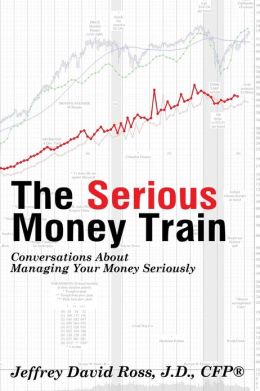
Many of us have wondered how and why the news media attributes daily market performance to some relatively ephemeral news event (e.g., “the Dow was down 250 points today on news of a poor employment report…”) when common sense tells us that millions of investors nationwide could not possibly have responded to the same report in the same way.
Those of you who have asked me this question generally get a response that goes something like “Well, don’t forget, the business of news is to sell news even when there isn’t any news. If the media were to report the ups and downs of the market accurately, the news would be quite boring, predictable, and non-newsworthy.”
To that end, earlier this month I came across a market update written by Morgan Housel of The Motley Fool. Mr. Housel calls it a market update “for people with long attention spans.” I must disclose to you that this update is not real, although it should be because it fits how a long-term Serious Money Investor would and should think about the daily market news. I am providing his update verbatim in its entirety:
“One hundred forty-eight million eight hundred thousand and five Americans woke up and went to work Monday in what economists called a “remarkable, collective effort of people trying to improve their lives and take care of their families.”
Analysts also confirmed that about 30 million U.S. companies were open for business, with widespread reports of an urge to innovate and keep up with competition.
“We tend to see this on Mondays,” said John Peterson, a Goldman Sachs analyst. “People wake up, go to work, make money, pay their bills, save the rest, and get on with life.”
American businesses earned $4.62 billion of net income Monday. Financial advisors, analysts, and brokers, collected $630 million in fees. The difference will accrue to investors’ net worths over time, analysts said.
“Our outlook calls for the same thing on Tuesday, continuing into Wednesday,” Peterson said. “People go to work. Businesses innovate and reinvest the profits, and it just cycles on from there.”
About five thousand workers were laid off on Monday, and more than 4,000 companies went out of business. But more than 13,000 workers were hired, and more than 5,000 new businesses were created. Technical analysts studying charts called it a “classic capitalism pattern” and expected it to continue.
Fifty-five million American kids went to school Monday, compounding the knowledge learned from all previous generations. Analysts confirmed that many of them will become doctors, engineers, and scientists.
In San Francisco, 30-year-old Megan Johnson said the line at her local Chipotle was out the door and wrapped around the building, in what she described as “a pretty clear example of what happens when a company takes a simple product like a burrito and puts a little more effort into making it better than the competition.”
By the end of the day, 1,604 patent applications had been filed with the U.S. Patent and Trademark Office. “Most of those ideas won’t go anywhere,” said PTO analyst Greg Jones. “But a few will be huge. Ten, 20 years from now, a handful of patents filed on Monday will change the world. That’s so cool to think about.”
In Palo Alto, Calif., there were widespread reports of 19-year-old Stanford students tinkering with gadgets in their parents’ basements. During a call with investors, Sean Rogan of Realistic Asset Management said he’s confident a few of them are working on something that will change the world in ways we can’t even fathom. “We see this with every generation, frankly,” he said. “Ten years from now, one of these kids is going to be the next Bill Gates. It makes me excited to be an investor.”
U.S. oil fields pumped more than 9 million barrels of crude Monday, near the highest level since Richard Nixon was president. Economists surveyed by Bloomberg unanimously agreed that this was “pretty awesome.”
The Dow Jones Industrial Average lost 480 points on Monday. “Huh,” Peterson said. “I hadn’t heard.”
Long-term investors finished Monday one day closer to their goals.
Analysts expect the news to be no different tomorrow.”
Jeffrey Ross
Registered Investment Advisor
The Planner’s Edge
FORWARD LOOKING STATEMENT DISCLOSURE
As a Registered Investment Advisor, one of our responsibilities is to communicate with clients in an open and direct manner. Insofar as some of our opinions and comments are based on current advisor expectations, they are considered “forward-looking statements” which may or may not be accurate over the long term. While we believe we have a reasonable basis for our comments and we have confidence in our opinions, actual results may differ materially from those we anticipate. You can identify forward-looking statements by words such as “believe,” “expect,” “may,” “anticipate,” and other similar expressions when discussing prospects for particular events and/or the markets, generally. We cannot, however, assure future results and disclaim any obligation to update or alter any forward-looking statements, whether as a result of new information, future events, or otherwise. Further, information provided in this letter should not be construed as a recommendation to purchase or sell any particular security.
The Planner’s Edge®: TM & copyright 2013. All rights reserved. No part of this publication may be reproduced in any form, or by any means whatsoever without written permission from the publisher. Serious Money TalksTM is a trademarks of The Planner’s Edge®. If you would like further information about the services of The Planner’s Edge®, please call 206-232-4500 or 1-800-735-7302. Email: info@theplannersedge.com.

